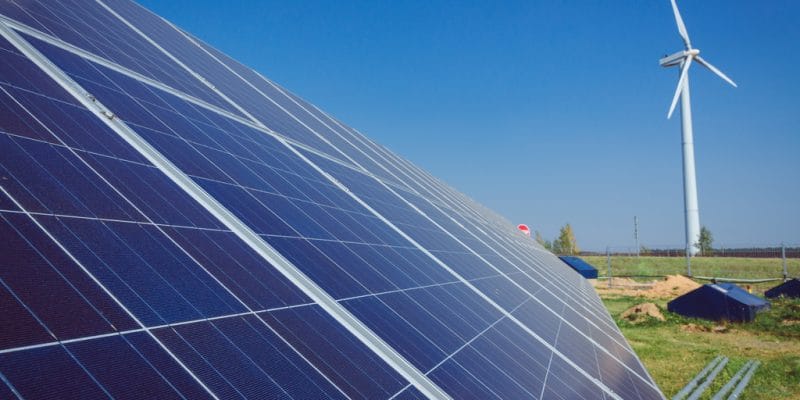
110.000 Jobs Created by Renewable Energy Projects in Turkey, According to the latest report by Ernst & Young, prepared with the support of the European Climate Foundation, reveals that renewable energy projects in Turkey have the potential to generate some 9.2 gigawatts and 110,000 new jobs.
The report, entitled “A Clean COVID-19 Recovery: Global Opportunity for G20 Leadership”, covers a total of 47 countries in terms of renewable projects, with the main focus on the UK, Turkey and South Africa.
The data indicates that the 238 renewable energy projects in Turkey ready for implementation represent an investment volume of $19.4 billion (TL 168.42 billion), most of which would be allocated to wind and solar energy.
According to the report, “a green recovery focused on renewable energy could create large-scale jobs in the short term while supporting sustainable employment in the long term.”
Indeed, many of the existing jobs in the coal industry could be generated in the renewable energy sector, provided Turkey continues to strengthen its local supply chain and renewable energy capacity.
 The basics of decarbonisation for the Turkish economy
The basics of decarbonisation for the Turkish economy
Decarbonisation refers to the set of measures and methods that reduce the carbon content, more specifically CO2, of energies and even of an entire economy. The report notes that a green recovery could form the basis of the decarbonisation for the Turkish economy.
This series of projects should also allow Turkey to benefit from the potential opportunities offered by the European Green Deal and limit the potential challenges of policy instruments such as carbon price readjustments at the border.
It is estimated that the implementation of these projects could reduce CO2 emissions by 35 million tonnes per year, representing a 7% reduction in total emissions.
These are planned in various regions of the country, with the Marmara and Mediterranean regions having the most projects.
10 million jobs at the centre of sustainable development
The report states that 10 million jobs could be created worldwide as a result of the 1,300 renewable energy projects currently under construction, with a total investment volume of $2 trillion.
The programme plans to generate 1 terawatt of renewable capacity
A terawatt is a power measurement unit, equivalent to 10 to 12 watts, or 1000 billion watts.
In South Africa, another country examined closely by the report, 184 projects are listed as ready for implementation, which would create 102,000 local jobs for a total of 10.3 gigawatts.
In the UK, the green sector accounts for 440,000 jobs in 540 projects. The total number of projects will rise to 668, creating 625 jobs if storage, transport and distribution operations are added. This could mitigate 90% of the job losses associated with the pandemic, the report says.
Turkcell acquires 18MW wind farm
Turkish telecom company Turkcell wants to supply renewable energy to its operations by 2030 and has acquired an 18 MW wind farm in Turkey.
Turkcell Enerji, a subsidiary of the company, said this week that it had signed a share transfer agreement to acquire Boyut Grup Enerji, owner of the İzmir Karadağ wind farm.
The wind farm, which started operating in 2016 and has an energy licence valid until 2057, has an installed capacity of 18 MW and annual electricity production of 67.5 GWh.
Turkcell will pay US$11.5 million after adjustments of BGE’s debt, with a base transaction value of $29.6 million.
“In line with our approach to sustainability, we continue to make investments in renewable energy and aim to become a company that meets its electricity needs from environmentally friendly resources,” said Murat Erkan, CEO of Turkcell, which is committed to meeting its renewable energy demand by 2030 and becoming a carbon-neutral company by 2050.
With the total solar cell capacity of the Cyprus wind farm and Turkcell’s data centre panels averaging 0.25MW per year, this 18MW wind farm expansion represents a significant increase.
Quick overview of Europe
In Europe, several telecoms companies such as BT, Orange, TDC Net and TIM have signed PPAs (“power purchase agreements”; these finance the construction of infrastructure that generates electricity from renewable energy: this involves investment and operating costs) in recent months.
Vodafone, another Turkish telecom company, has declared that all its European operations are now powered by renewable energy. In the future, it is expected that more companies may actively take part in renewable energy projects in Turkey.
If you would like to learn more about the energy industry in Turkey, you can visit the fastest growing industries page.

